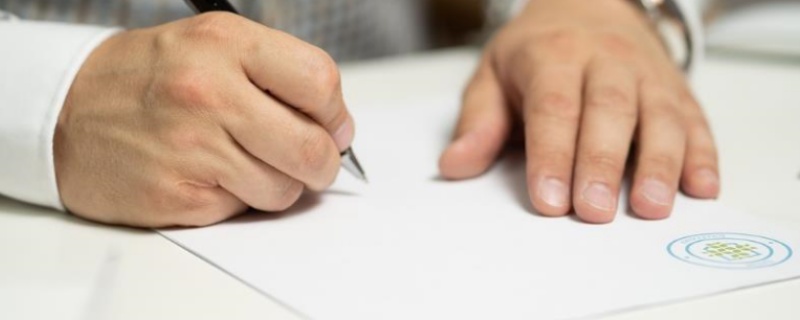移动;离开(MOVING OR LEAVING)
In most cases the past participle of
go is
gone, but occasionally you use ‘been’: see
been.
多数情况下,
go的过去分词为
gone,偶尔也用been:见been。
1.去;行进
When yougo somewhere, you move or travel there.
e.g. We went to Rome...
我们去了罗马。
e.g. Gladys had just gone into the kitchen...
格拉迪丝刚进厨房。
2.离开;走
When yougo, you leave the place where you are.
e.g. Let'sgo...
我们走吧。
e.g. She's going tomorrow.
她明天走。
3.去参加,去从事(某活动)
You usego to say that someone leaves the place where they are and does an activity, often a leisure activity.
go的解释
e.g. We went swimming very early...
我们很早就去游泳了。
e.g. Maybe they've just gone shopping...
或许他们刚去购物了。
4.去做…(可用go to do, 也可用go and do,美国英语中还可用go do,然而一般说 went and did)
When yougo to do something, you move to a place in order to do it and you do it. You can alsogo and do something, and in American English, you cango do something. However, you always say that someonewent and did something.
e.g. His second son, Paddy, had gone to live in Canada...
他的二儿子帕迪去加拿大生活了。
e.g. I mustgo and see this film...
我一定要去看这部电影。
5.去(上学、上班或教堂)
If yougo to school, work, or church, you attend it regularly as part of your normal life.
e.g. She will have togo to school...
她将不得不去上学。
e.g. His son went to a top university in America.
他的儿子上了美国的一所顶级大学。
6.(路)通向,延伸到,位于
When you say where a road or pathgoes, you are saying where it begins or ends, or what places it is in.
go的反义词
e.g. There's a mountain road that goes from Blairstown to Millbrook Village.
有一条山路从布莱尔斯敦通向米尔布鲁克村。
7.(用于否定表达中,表示对所提到行为不赞成或不允许某人有这种行为)
You can usego in expressions such as 'don't go telling everybody', in order to express disapproval of the kind of behaviour you mention, or to tell someone not to behave in that way.
e.g. You don't have togo running upstairs every time she rings...
用不着她一来电话你就往楼上跑。
e.g. Don't yougo thinking it was your fault.
别觉得是你的错。
8.(与further,beyond等词连用,表示某事的进展或程度)
You can usego with words like 'further' and 'beyond' to show the degree or extent of something.
e.g. He went even further in his speech to the conference...
他在大会发言中作了更进一步的阐述。
e.g. Some physicists have gone so far as to suggest that the entire Universe is a sort of gigantic computer.
一些物理学家竟然提出整个宇宙就像一台巨型计算机。
9.(时间)过去,流逝
If you say that a period of timegoes quickly or slowly, you mean that it seems to pass quickly or slowly.
go的翻译
e.g. The weeksgo so quickly!
这几周过得真快!
10.(钱)用于,花掉
If you say where moneygoes, you are saying what it is spent on.
e.g. Most of my money goes on bills...
我的钱大部分用来支付各种账单。
e.g. The money goes to projects chosen by the wider community.
这笔钱将用于由更广泛的社会群体所选出的项目。
11.由…得到;授予;归于
If you say that somethinggoes to someone, you mean that it is given to them.
e.g. A lot of credit mustgo to the chairman and his father...
很大一部分功劳应归于主席和他的父亲。
e.g. The job went to Yuri Skokov, a capable administrator.
尤里·斯科科夫得到了这份工作,他是一位能干的管理人员。
12.上,参加(电视或电台节目)
If someonegoes on television or radio, they take part in a television or radio programme.
go的翻译
e.g. The Turkish president has gone on television to defend stringent new security measures...
土耳其总统上电视为严格的新安全措施进行辩护。
e.g. We went on the air, live, at 7.30.
我们上了7点30分进行的现场直播。
13.被除掉;被去掉
If somethinggoes, someone gets rid of it.
e.g. The Institute of Export now fears that 100,000 jobs willgo...
现在出口协会担心将失去10万个工作机会。
e.g. If people stand firm against the tax, it is only a matter of time before it has togo.
如果人们坚决抵制这项税收,它的废止就仅仅是个时间问题。
14.(常指被迫)辞职
If someonegoes, they leave their job, usually because they are forced to.
e.g. He had made a humiliating tactical error and he had togo.
他犯了一个让他颜面尽失的战术错误,只得引咎辞职。
15.被放入;包含于
If somethinggoes into something else, it is put in it as one of the parts or elements that form it.
e.g. ...the really interesting ingredients thatgo into the dishes that we all love to eat.
我们都爱吃的菜肴里所放入的十分有趣的原料
16.装得进;塞得进
If somethinggoes in a particular place, it fits in that place or should be put there because it is the right size or shape.
e.g. He was trying to push it through the hole and it wouldn'tgo.
他想将它从这个洞里推过去,但却怎么也过不去。
e.g. ...This knob goes here.
这个拉手要装在这里。
17.(按惯例应)置于
If somethinggoes in a particular place, it belongs there or should be put there, because that is where you normally keep it.
e.g. The shoesgo on the shoe shelf...
鞋子放在鞋架上。
e.g. 'Where does everythinggo?'
“东西都到哪儿去了?”
18.除尽;除
If you say that one numbergoes into another number a particular number of times, you are dividing the second number by the first.
e.g. Six goes into thirty five times.
6除30得5。
19.(官能)衰退,下降
If one of a person's senses, such as their sight or hearing,is going, it is getting weak and they may soon lose it completely.
go什么意思
e.g. His eyes aregoing; he says he has glaucoma...
他的视力在下降,他说自己得了青光眼。
e.g. Lately he'd been making mistakes; his nerve was beginning togo.
他近来老犯错误,胆子也开始变小了。
20.(灯泡、引擎等)损坏,报废,无法正常运转
If something such as a light bulb or a part of an engineis going, it is no longer working properly and will soon need to be replaced.
go是什么意思
e.g. I thought it looked as though the battery was going.
我看电池好像该换了。
21.奄奄一息;去世
If you say that someoneis going orhas gone, you are saying in an indirect way that they are dying or are dead.
e.g. 'Any hope?' — 'No, he'sgone.'
“还有希望吗?”——“没有,他已经死了。”
连系动词的用法(LINK VERB USES)
1.变得;成为
You can usego to say that a person or thing changes to another state or condition. For example, if someonegoes crazy, they become crazy, and if somethinggoes green, it changes colour and becomes green.
e.g. I'm going bald...
我开始秃头了。
e.g. You'd better serve it to them before it goes cold...
你最好趁热给他们端上桌。
2.(表示是否穿戴或拥有某物)
You can usego when indicating whether or not someone wears or has something. For example, if someonegoes barefoot, they do not wear any shoes.
e.g. The baby went naked on the beach...
这个小宝贝光着身子在沙滩上。
e.g. But if you arm the police won't more criminalsgo armed?
但是,如果你给警察配备武器,难道不会出现更多配备武器的罪犯吗?
3.(用在以un开头的形容词之前表示某事没有发生)
You can usego before adjectives beginning with 'un-' to say that something does not happen. For example, if somethinggoes unheard, nobody hears it.
e.g. As President, he affirmed that no tyranny went unnoticed.
他以总统的名义宣称没有对任何暴行置若罔闻。
其他动词用法,名词用法与短语(OTHER VERB USES, NOUN USES, AND PHRASES)
1.进展;进行
You usego to talk about the way something happens. For example, if an event or situationgoes well, it is successful.
go的解释
e.g. She says everything is going smoothly...
她说一切进展顺利。
e.g. How did itgo at the hairdresser's?
你去理发店理得还算满意吗?
2.(机器或装置)运转,运行,工作
If a machine or deviceis going, it is working.
go
e.g. What about my copier? Can you get it going again?...
我的复印机怎么样了?你能把它修好吗?
e.g. I said, 'My car won'tgo in fog'.
我说:“我的车在雾天里没法开。”
3.(铃等)鸣响
If a bellgoes, it makes a noise, usually as a signal for you to do something.
e.g. The bell went for the break.
课间休息铃响了。
4.(与…)相配;(与…)相称
If somethinggoes with something else, or if two thingsgo together, they look or taste nice together.
e.g. I was searching for a pair of grey gloves togo with my new gown...
我在找一副跟我的新礼服相配的灰色手套。
e.g. I can see that some coloursgo together and some don't...
我看得出来有些颜色相配,有些却不协调。
5.(用于引出要引用的话)
You usego to introduce something you are quoting. For example, you saythe story goes orthe argument goes just before you quote all or part of it.
go
e.g. The story goes that she went home with him that night...
据说她那天晚上跟他一起回了家。
e.g. The story goes like this...
事情据说是这样的。
6.发出…声响
You usego when indicating that something makes or produces a sound. For example, if you say that somethinggoes 'bang', you mean it produces the sound 'bang'.
go的近义词
e.g. She stopped in front of a painting of a dog and she started going 'woof woof'...
她在一幅狗的画像前停下来,开始“汪汪”地学起狗叫来。
e.g. The button on his jeans went POP.
他牛仔服上的纽扣发出“啪”的响声。
7.说(代替say,表示引述他人的话或认为他们要说的话)
You can usego instead of 'say' when you are quoting what someone has said or what you think they will say.
e.g. They say 'Tom, shut up' and Igo 'No, you shut up'...
他们说:“汤姆,你闭嘴!”我说:“才不呢,你们闭嘴!”
e.g. Hegoes to me: 'Oh, what do you want?'
他问我:“哦,你想要什么?”
8.尝试;努力
Ago is an attempt at doing something.
e.g. I always wanted to have ago at football...
我一直都想试试踢足球。
e.g. She won on her firstgo...
她第一次尝试就赢了。
9.(牌戏、下棋等中)轮到的顺序
If it is yourgo in a game, it is your turn to do something, for example to play a card or move a piece.
e.g. I'm two behind you but it's yourgo...
我落后你两步,但现在轮到你走了。
e.g. Now whosego is it?
现在轮到谁了?
10. see also: going;gone
11.全力以赴;不遗余力地做
If yougo all out to do something orgo all out for something, you make the greatest possible effort to do it or get it.
e.g. They willgo all out to get exactly what they want...
他们将尽最大努力实现自己的愿望。
e.g. They're ready togo all out for the Premier League title next season.
他们准备全力以赴,夺取下赛季的超级联赛冠军。
12.干(或说)什么都行;什么事都不新鲜
If people say 'anything goes', they mean that anything people say or do is considered acceptable, and usually they mean that they do not approve of this.
go
e.g. In the 90s, almost anything goes.
在90年代几乎无奇不有。
13.与同类的事物相比/跟其他小孩相比
You use expressions likeas things go oras children go when you are describing one person or thing and comparing them with others of the same kind.
e.g. This is a straightforward case, as these thingsgo...
同其他同类情况相比,这件事还算简单。
e.g. He's good company, as small boysgo.
与其他小男孩相比,他挺好相处。
14.未事先准备;无意之中
If you do somethingas yougo along, you do it while you are doing another thing, without preparing it beforehand.
e.g. Learning how to become a parent takes time. It's a skill you learn as yougo along.
学会如何为人父母需要时间,这种技能只能边经历边学习。
15.干蠢事;犯傻
If you say that someonehas gone and done something, you are expressing your annoyance at the foolish thing they have done.
e.g. Well, he's gone and done it again, hasn't he?...
噢,他又干傻事了,是吧?
e.g. Somebody goes and does something mindless like that and just destroys everything for you.
总有人干这种没头没脑的事,把你的事情全弄砸。
16.大胆尝试吧
You say 'go for it' to encourage someone to increase their efforts to achieve or win something.
17.攻击;批评;非难
If someonehas a go at you, they criticize you, often in a way that you feel is unfair.
go是什么意思
e.g. Some people had ago at us for it, which made us more angry.
一些人因为此事攻击我们,这使我们更加气愤。
18.我们下一步该怎么办
If someone says 'Where do we go from here?' they are asking what should be done next, usually because a problem has not been solved in a satisfactory way.
go的翻译
19.在…方面取得一定成功
If you say that someoneis making a go of something such as a business or relationship, you mean that they are having some success with it.
e.g. I knew we could make ago of it and be happy.
我知道我们能做成这件事并且会很开心。
20.忙个没完;十分活跃
If you say that someone is alwayson the go, you mean that they are always busy and active.
e.g. I got a new job this year where I am on thego all the time.
我今年找了份新工作,一直忙得不可开交。
21.忙于做…
If youhave somethingon the go, you have started it and are busy doing it.
e.g. Do you like to have many projects on thego at any one time?
你喜欢一次忙多个项目吗?
22.待做;有待完成
If you say that there are a particular number of thingsto go, you mean that they still remain to be dealt with.
e.g. I still had another five operations togo.
我还有5例手术要做。
23.(时间)剩下
If you say that there is a certain amount of timeto go, you mean that there is that amount of time left before something happens or ends.
e.g. There is a week togo until the elections.
离选举还有一周的时间。
24.(食物)带出餐馆吃的,外卖的
If you are in a café or restaurant and ask for an item of foodto go, you mean that you want to take it away with you and not eat it there.
go的反义词
e.g. Large fries togo.
大份炸薯条带走。
in BRIT, usually use 英国英语通常用to take out, to take away
短语动词(PHRASAL VERBS)
相关词组:go aboutgo aftergo againstgo aheadgo alonggo along withgo aroundgo around withgo atgo awaygo backgo back ongo back togo beforego bygo downgo down asgo down ongo down withgo forgo ingo in forgo intogo offgo off withgo ongo outgo out forgo out ofgo overgo over togo roundgo throughgo through withgo towardsgo undergo upgo withgo without



